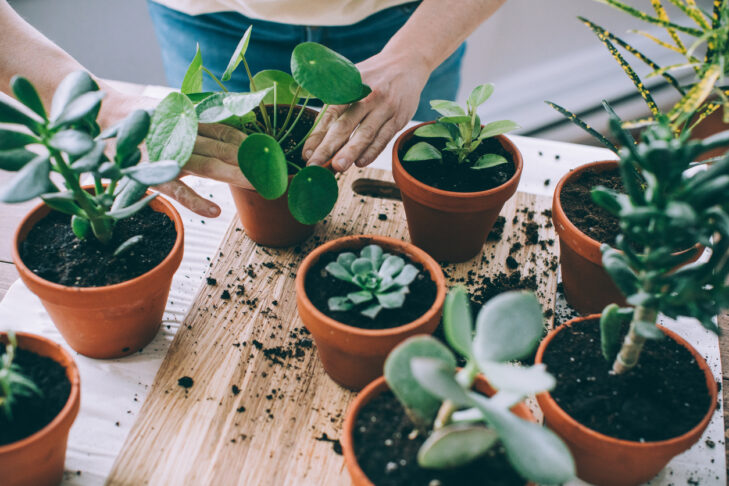All summer, my partner and I missed trees. It isn’t as if Boston is bereft of green spaces (hello, Mount Auburn Cemetery!), but we both grew up in heavily wooded areas, places around which towns were built instead of vice versa. My elementary school was spitting distance from a vast, well-trodden forest, and a long, quiet hike could be found less than a mile away.
In quarantine, the distance between the nearest forest and us felt insurmountable. Even if we did brave public transportation, nearby green spaces were often packed with people, and contemplative silence felt far away. Usually, I love the densely populated streets of Boston and its surrounding areas, but as time wore on, I found myself craving green. So, I brought the green inside.
Despite a natural human love of plants, I’m not that great at taking care of them. A lot of hardier indoor plants require specific amounts of sunlight, which is difficult to provide when one lives in a small apartment, and if I left my plants outside for that sun, I inevitably forgot to water them. More than one succulent, though they are often lauded as being low maintenance, has died by my hand (most often through overwatering, because it is absolutely possible to love something too much). However, during quarantine, I spent more time nurturing, repotting and listening to my remaining succulents and cacti, and watching them flourish has been a bright spot in an otherwise isolating time.
I’m not alone in this newfound love of plants, however. The phenomenon of “plant parents” is well-documented in young people, in part because they fulfill a nurturing urge for those living in tiny, pet-prohibited apartments. This extended time spent inside only makes caring for plants more valuable, particularly if green spaces are not readily available. Having houseplants improves air quality, decreases illness and even helps those who struggle with anxiety and depression.
In the same vein, Tu BiShvat, or the celebration of trees, is nearly here, and while vaccine rollouts are beginning to ramp up, it’s unclear whether gatherings, even outdoors, will be fully safe anytime soon. Regardless, I believe this year’s Tu BiShvat is vitally important not only for our spiritual health, but our mental health as well. Traditionally, Tu BiShvat is celebrated through planting trees, but we can just as easily celebrate at a distance.
Even something as simple as welcoming a new plant into our homes or nurturing our local flora can be an appreciation of the new life and rebirth that Tu BiShvat represents. Additionally, a Tu BiShvat seder can be used to celebrate the more tangible gifts of nature and even bring some olive haters into the fold. As we become accustomed to celebrating holidays at a distance, it’s important to treasure the planet as well as each other. Even if that means moving around a succulent for the best possible sunlight.



